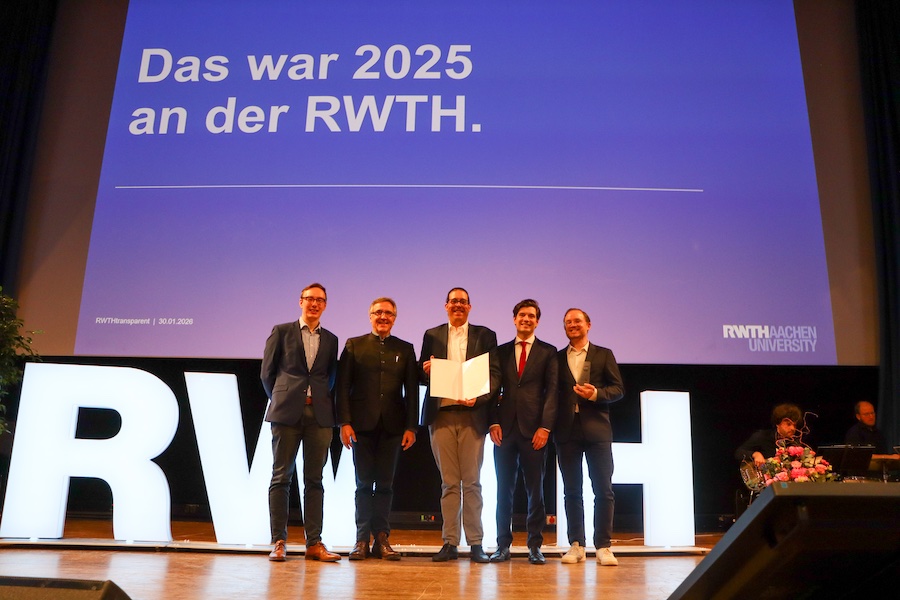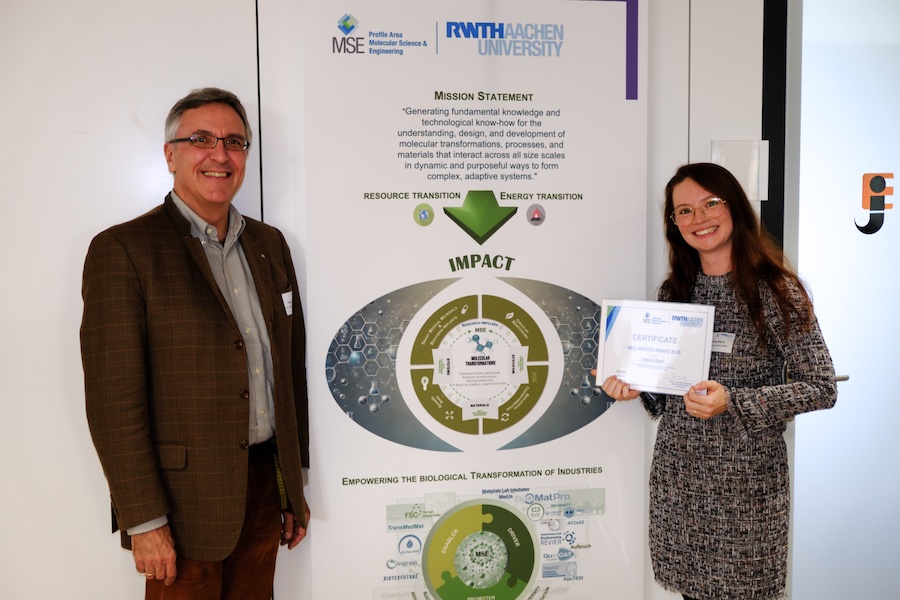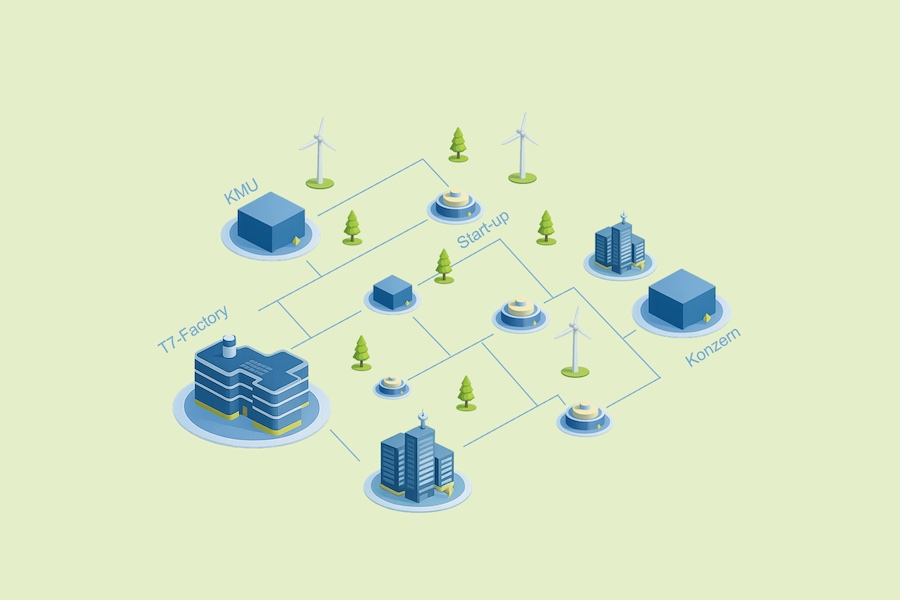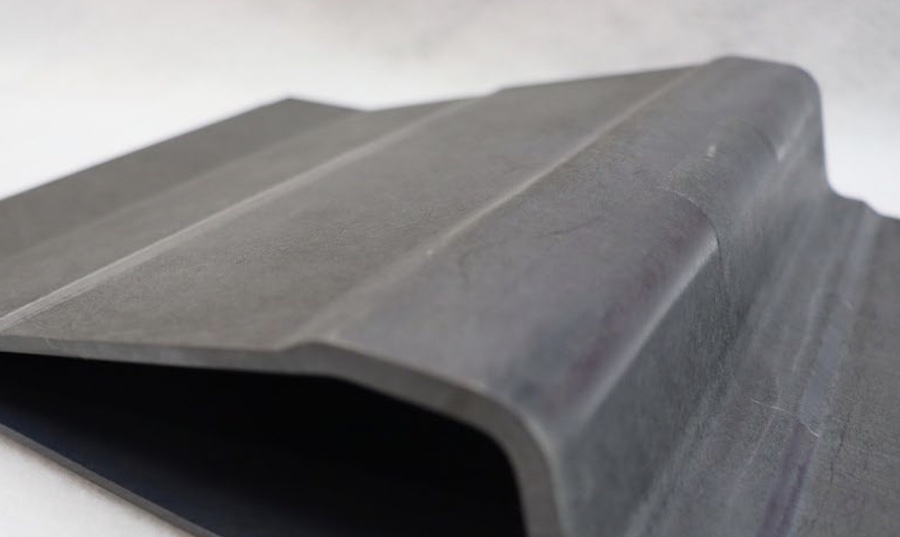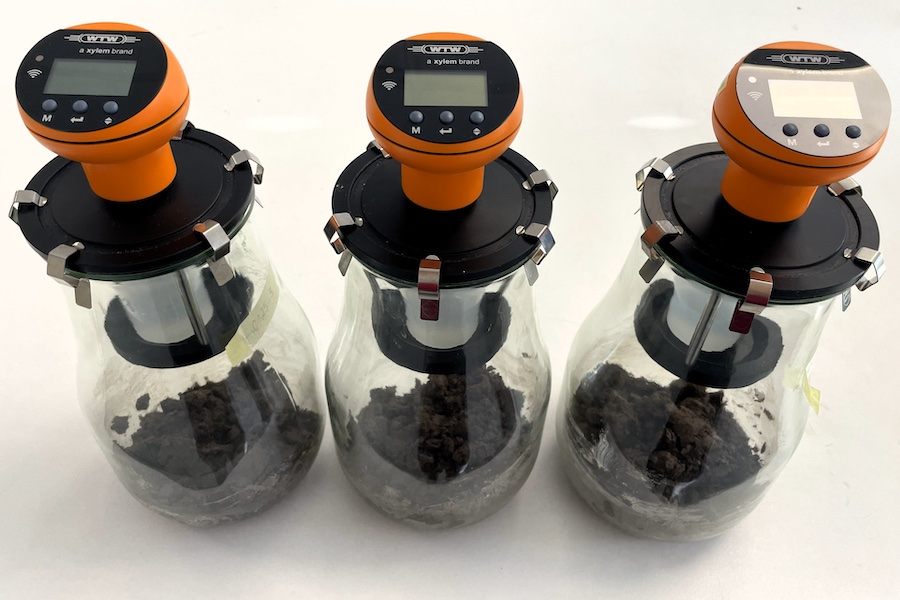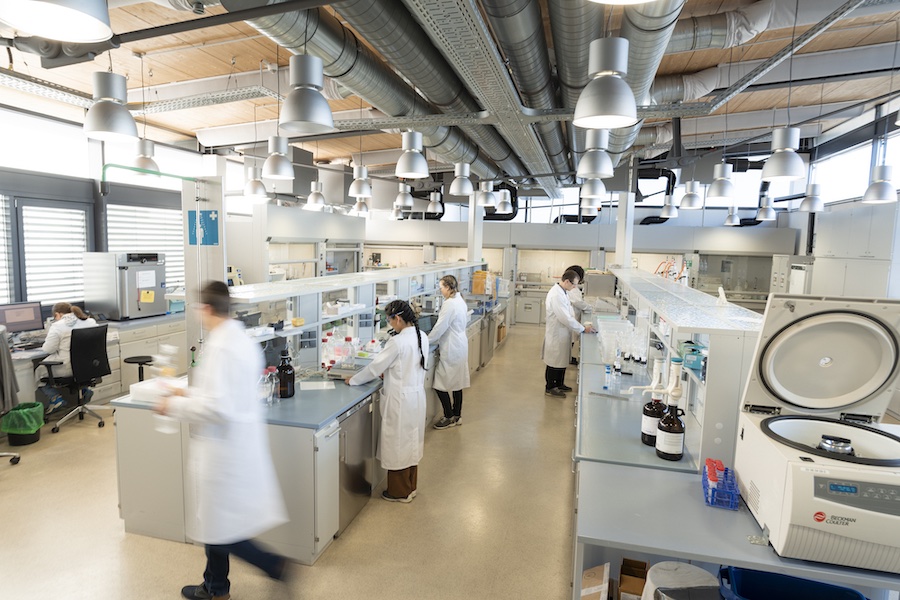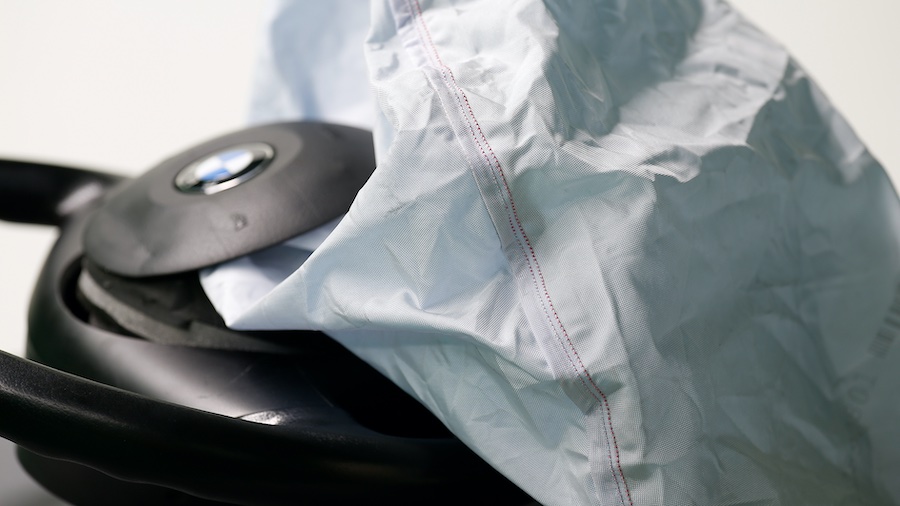#Research & Development
Walter Reiners-Stiftung (Foundation) once again awards two ITA prize winners
The VDMA Textile Machinery Association has awarded two prizes to graduates of the Institut für Textiltechnik of RWTH Aachen University, short ITA, the sponsorship prize for the best dissertation and the creativity prize of the Walter Reiners-Stiftung (Foundation) of the German Textile Machinery Industry 2020. ITA postdoc Dr.-Ing. Frederik Cloppenburg with his dissertation with the topic "Economic and technical modelling and self-optimisation of nonwoven carding machines" was awarded with the prize for the best dissertation. ITA student Juan Carlos Arañó Romero was awarded with the creativity prize for his work "Miniaturised spinning system for the production of mineral continuous fibres under microgravity". The dissertation prize is endowed with 5,000 €, the creativity prize with 3.,000 €. Peter D. Dornier, President of the Walter Reiners-Stiftung (Foundation) and Chairman of the Management Board of Lindauer DORNIER, presented the awards on December 2, 2020. For the first time the ceremony took place in a web conference due to the current corona pandemic.
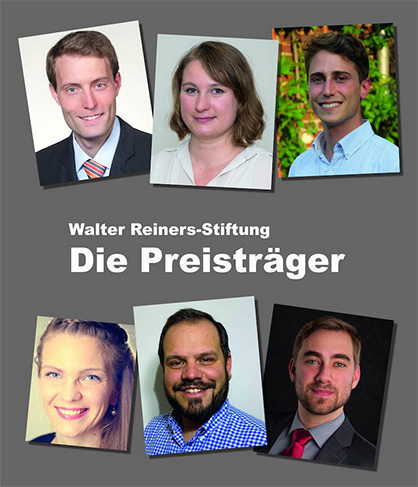
Economic and technical modelling and self-optimisation of nonwoven carding
The carding machine serves to form a fibre web by dissolving fibres. The carding process is the most important process for the production of nonwovens from staple fibres. The quality of the nonwoven is influenced by a variety of properties such as raw material, production settings and environmental conditions. The carding process in particular has a strong influence on product quality and economics of the whole process.
In his dissertation, Dr Frederik Cloppenburg has developed a method consisting of a measuring system, simulation and optimisation that optimises the settings of the card from both technical and economical points of view. The measuring system records all parameters influencing the resulting quality and production costs. An optical inspection system continuously records the resulting quality values during production.
Artificial neural networks were successfully trained to predict the expected quality and production costs. The investment in measurement technology, simulation and optimisation usually pays off within 3 –14 months. All in all, Dr Cloppenburg's dissertation has led to considerable progress in the production of carded nonwovens. The procedure is not limited to the carding process, and can be transferred to other textile and non-textile processes.
Instructions for the construction of a spinning plant under space conditions
More and more countries are interested in production on the moon, for example to develop new production facilities. In order to create a local infrastructure for this purpose and to reduce high transport costs, a solution is to extract the barrels directly from raw materials available on the moon.
Mr Arañó Romero has shown in his paper "Miniaturised spinning plant for the production of mineral continuous fibres under micro-gravity" how a spinning plant can be operated under space conditions.
The transport of payloads into space, e.g. for research missions or the construction and supply of manned lunar stations, poses immense economic challenges as well as technological and physical complexities. With payload costs of 1,1million €/kg to the lunar surface, weight reduction is of utmost priority, especially concerning space projects that require large freight volumes. However, raw materials from the Moon or Mars in the form of regolith are suitable to produce habitat building materials, thus, reducing freight costs to ease and allow furthering missions into space. For this purpose, continuous mineral fibres, e.g. basalt fibres, can be utilised in situ to produce fibre composites, thermal insulation, filters and hydroponic mineral wool for plant cultivation, among other things. However, this requires an automated spinning unit that can operate under space conditions.
"We are very pleased that our graduates will be Walter Reiners Foundation award winners in 2020 as in the three previous years," says ITA Institute Director Professor Dr Thomas Gries. "This shows the quality of our training."
Through its Walter Reiners-Stiftung ( Foundation), the VDMA Textile Machinery Association is actively committed to supporting young engineers. Every year, the Foundation of the German Textile Machinery Industry awards prizes for the best dissertation, diploma or master's thesis and the creativity prize for the cleverest student research project.




